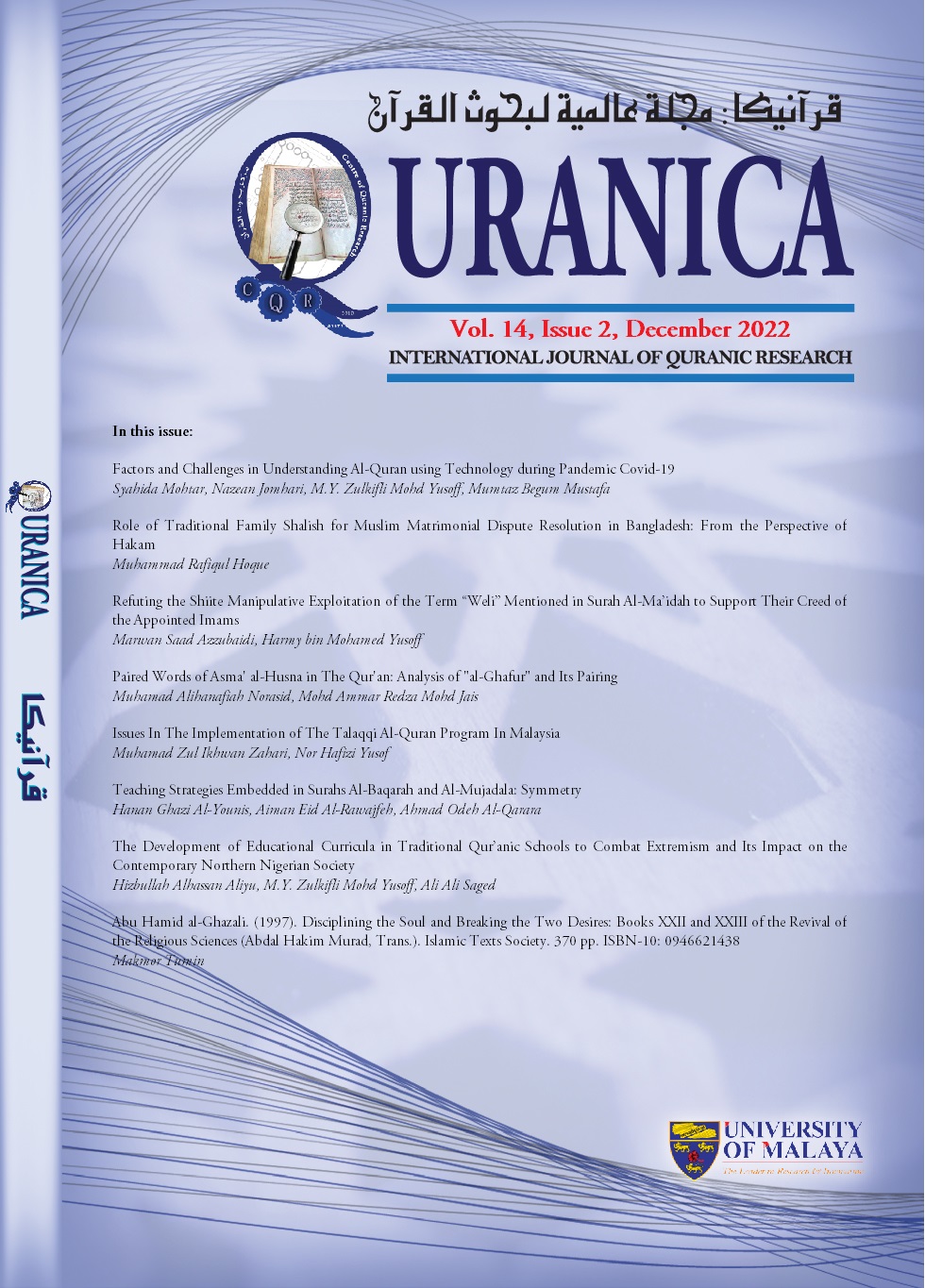Refuting the Shiite Manipulative Exploitation of the Term “Weli” Mentioned in Surah Al-Ma’idah to Support Their Creed of the Appointed Imams
Main Article Content
Abstract
A major deflection in the Shiite creed that widened the gap between them and the Islamic faith is their belief in the continuation of the religious message after the departure of Prophet Muhammad ﷺ. The Shiites called this belief pillar Al-Welayah, and they defined it as “Leadership with divine authority”. The Shiite claimed that Allah SWT appointed men whom He chose from the descendants of the Prophet Muhammad ﷺ to continue leading the Muslim nation righteously. The failure of Shiite theologists to find clear evidence from the Holy Qur’an supporting this alleged creed provoked them to exploit certain verses, assuming they would indirectly serve their purpose. This article aims to reveal the falsehood in the Shiite devious explanation, and the Muslim scholars’ invalidation of the incorrect interpretation of verse no. 55 of chapter 5, Surah Al-Ma’idah. In conclusion, the term “weli” did not mean a leader in this verse, as this meaning will lead to false implications. Moreover, the exegesis of Ibn Katheer refuted the authenticity of the incident made up to imbue the idea that the verse indicated a person per se. Yet, it was an instruction for the Muslim nation to consider allies from the believers rather than the non-believers. Furthermore, the context of the verses testifies to the forged incident of the Shiite story. Therefore, this verse does not stand as evidence to support the Shiite belief, neither from the linguistic view nor from the logical, and contextual aspects of the verse.
Downloads
Article Details
Disclaimer
QURANICA makes every effort to ensure the accuracy of all its contents. However, opinions, discussions, views and recommendations are expressed in this journal do not necessarily reflect the official policy of QURANICA or views of its editors or publishers. Therefore, QURANICA and its publishers will not be liable for any controversy may be arisen. The journal reserves the right, at its sole discretion, to change its terms and conditions of publications.
Copyright
It is a condition of publication that manuscript submitted to the journal have not been published, accepted for publication, nor simultaneously submitted for publication elsewhere. By submitting a manuscript, the author(s) agrees that copyright for the article is transferred to the publisher, if and when the manuscript is accepted for publication.
